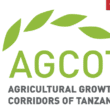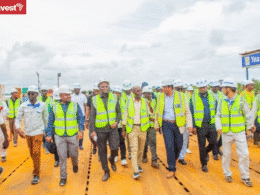TANZANIAINVEST has been interviewing Mr. Gaudence Temu, Chief Executive Officer of Swissport Tanzania, the leading Tanzania ground handler, to gather his vision and opinion about the Tanzania aviation sector.
| Gaudence Temu, Chief Executive Officer of Swissport Tanzania |
TI: What are the origins of DAHACO, today Swissport Tanzania, the only company that, for many years, has been granted the exclusive right to provide airport ground handling services on two of the four international airports in Tanzania?
Gaudence Temu – Swissport Tanzania: DAHACO, today Swissport Tanzania, has been in business for the last 20 years.
We started modestly from the Dar es Salaam International Airport in 1995, providing a full range of ground handling services to all of the airlines flying to this city.
Prior to the formation of our company, airport ground handling was in a very poor state mainly because of a lack of equipment to match with the type of aircrafts that had started to land in Tanzania.
An independent company like DAHACO was formed because the Air Tanzania Corporation, today Air Tanzania Company Limited (ATCL), decided at that time to focus on its core business of flying and to do away with all the auxiliary services, such as airport ground handling.
There was also the need to build the capacity of the people and that is also why the government of Tanzania decided to invite different foreign investors to come and participate in the new company.
During the first five years, the initial operations at the Dar es Salaam International Airport were so successful that DAHACO was allowed to extend its operation to the Kilimanjaro International Airport.
Since then, the aviation industry in Tanzania has been growing and DAHACO has managed to cope and match with such growth and remain profitable.
Sometimes it is said this is thanks to the monopoly the company enjoys, but the monopoly itself, if resources are mismanaged, does not automatically imply a profitable output.
TI: More recently, in 2000, 51% of DAHACO’s capital was sold to SWISSPORT International. What was the reason behind such move?
GT: It must be understood that venture capitalists that first entered DAHACO had the policy to exit the company when this reached a consolidation level.{xtypo_quote_left}We realised that in order to achieve growth and to strengthen our market position, a player like Swissport International definitely had to come in.{/xtypo_quote_left}
Also, the government decided that DAHACO had to be privatised, not because it was a loss making company or the company was suffering from inefficiency, but to liberalise the sector and hand it over to the private sector.
On the other hand, we realised that in order to achieve growth and to strengthen our market position, a player like Swissport International definitely had to come in.
We invited this company because of its reputation and the fact that Swissport International is growing internationally in different markets.
Today, airlines prefer to do business with one handling company globally, if this is possible, and benefit form a series of advantages, such as better rates thanks to the geographical spread and economies of scales.
On the other hand, airlines want to see some consistency in the services they receive and Swissport International is operating today in more than 177 stations worldwide, including Dar es Salaam and Kilimanjaro International Airport.
TI: How will this have an impact on the further competition that is expected with the end of your exclusive license in 2007?
GT: Swissport International has deployed a global ISO 9001 quality system, meaning that airlines are able to receive services of high quality and consistency throughout.
This will certainly give us a competitive advantage, but will not be the only determinant factor with the expected further competition in the sector.
Certainly we have to continue delivery and meet the expectations of the customers.
For this we are currently investing, as we have already heavily invested, in ground support equipment.
We have just launched a couple of new pieces of equipment recently and this, I think, is giving us a competitive advantage.
TI: Flying to and within Tanzania is deemed expensive partially because of high handling costs. What is your opinion on the subject?
GT: I think such an argument is unfounded and cannot be supported with data.
We have conducted studies which allow us to know exactly how a market in Kenya as well as other African markets look like and I can tell you ground handling charges are cheaper in Tanzania than in those airports.
In addition to that, the handling airport services account for no more than 15% of the total cost an airline has to incur to operate in any particular destination.
TI: So what do you think is the reason for the high cost of flying in Tanzania?
GT: It appears to me we have not reached the economies of scale which would then allow the united cost to decrease.
I think for this to happen there has to be the political will and businesses have to be given certain incentives that would then allow charging less.
If, for example, businesses are taxed heavily this does not allow us to grow.
For example, until two years ago we were paying 5% of our turnover as concession fees to the Tanzania Airport Authority (TAA).
Now that we are talking about making our country more competitive, the Tanzania Airport Authority increased the concession fees to 8%, which is already on the high side of the industry.
The same applies for the facilities rental fees at the airports.
If we look at the airport land policy, you can be allowed to build a building or a facility, but then you would be required to surrender it to the Tanzania Airport Authority after fifteen years, to then become a tenant.
Given the market size, this is too much of a short period of time to recoup the investment.
At the end of the day, all these additional costs are charged to the end user.
I think we need to have a joint effort a stop pointing fingers to another and properly address the issue.
Perhaps we should allow more investment together in tourism to receive more tourists and allow economies of scale.
Let me stress the fact that airlines do not fly to a particular airport because it has fantastic facilities or because there has been massive campaigning to attract them.
Airlines can fly even to the most remote airport where there are no basic facilities as long as there is business, passengers and cargo to move.{xtypo_quote}We should allow more investment […] to receive more tourists and allow economies of scale.{/xtypo_quote}
Outlook of the Tanzania Aviation Sector
TI: What is your personal vision for the development of the ground handling business in Tanzania?
GT: Essentially, we still have to depend on the airlines to provide us with business.
In particular, ground handling companies benefit the most in their host countries if there is a strong national or home based carrier.
For Tanzania, we used to have Air Tanzania Corporation, which went down the drain and was subsequently privatised with the input of a strategic partner like South African Airways (SAA), to become Air Tanzania Company Limited (ATCL).
But this marriage recently came to an end, as the partners were incompatible.
I think the deal was not properly negotiated and I remain doubtful when a company is privatised by bringing, as a strategic partner, a government owned company, like South African Airways.
In the meantime, Precision Air has been designated as national carrier, but it is still a small airline.
Although I have a lot of respect for them and they are giving us business and they have experienced tremendous growth, they remain a small carrier.
What we need is a carrier like Kenya Airways (KA) is for Kenya: a home-based strong carrier.
Kenyan handling companies are benefiting immensely by Kenya Airways having its hub in Nairobi.
Likewise, Swissport International is benefiting because of the Swiss airlines hub in Zurich.
TI: What do you think will be the impact of pending the liberalisation of the Tanzania aviation sector in 2007, which will inevitably bring with it newcomers to the sector ?
GT: I think carriers will be able to assess who is able to deliver, and who is not.
One issue that we communicate to the government is that if you look at the airport facilities today they are old, outdated and inadequate, making handling, specifically during peak hours, particularly difficult.{xtypo_quote_right}The government should first address the infrastructure problem before talking about liberalisation.{/xtypo_quote_right}
I wonder what will happen when a second operator is introduced.
I don’t see how this will happen without jeopardising the safety of aircrafts and passengers.
So, we are trying to impress on the government these requirements.
What is also disturbing is the fact that, as of today, there is no regulatory framework which will govern a liberalised market.
I am aware there are draws, but they have not been discussed with the stakeholders.
So, I think the government should first address the infrastructure problem before talking about liberalisation.
We are informing the government that even with good intentions, government policies need to be implemented carefully and with consciousness.
There must be a conducive environment, failure to so and we are going to create chaos that will be counterproductive.
I do not want to be misunderstood on this issue: we do not fear competition, which is healthy, and, given the adequate investment environment, Swissport International can support us on that regard.
TI: Speaking of conducive environment, what would be your assessment about the Tanzania investment climate and opportunities available here?
GT: Tanzania has created a very good investment climate, which I think is among the top 10 countries in the world that really have reached such a level.
If you look at the economic growth, certainly the country is on the right track.
Most importantly, we have peace and stability which is necessary for investment.
There are problems, but some of these are temporary, such are power shortages and reliability and infrastructure.
Also business registration and licensing is still taking a long time, but I would say, looking ahead, Tanzania offers room for investment opportunities in almost all sectors.
Unfortunately Africa, including Tanzania, is projected wrongly by the media and mostly only the negative side of our country is given attention, rather than the successes and the business opportunities available.
We have to change this and project our country more positively. {xtypo_quote}Tanzania has created a very good investment climate, which I think is among the top 10 countries in the world that really have reached such a level.{/xtypo_quote}











